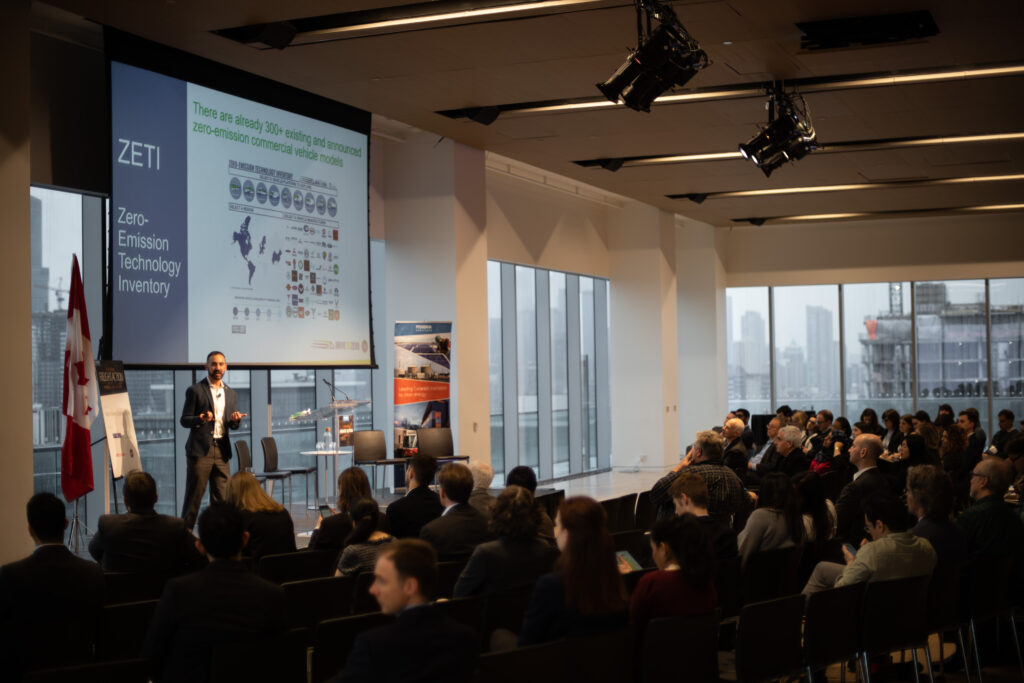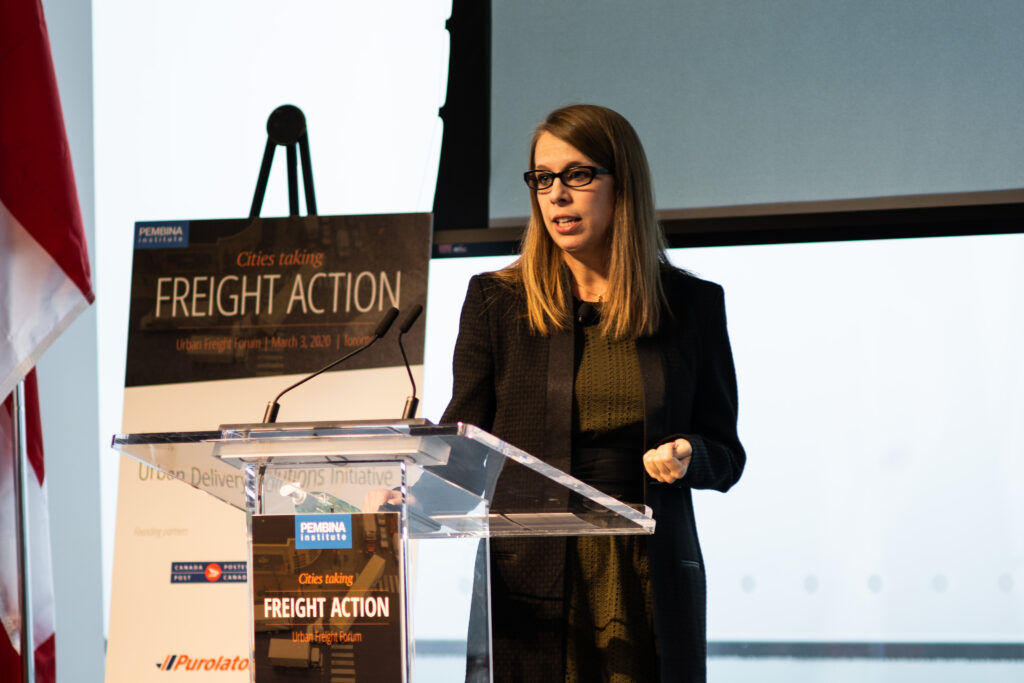The Urban Delivery Solutions Initiative

Projects Sponsor
When it comes to greening the economy, the Pembina Institute and its business coalition is delivering the goods
In Ontario, more than 30% of Ontario’s carbon emissions come from the transportation sector. Indeed, transportation is the highest emitting sector in seven out of ten provinces and all three territories in Canada, accounting for between 29% and 44% of total emissions.
As things stand, or more importantly, move, the sector’s contribution to emissions in Canada is only going to grow. Research undertaken by the Pembina Institute in 2014 concluded that reducing the environmental impact of freight activity needs to be a priority, in part because freight emissions in Canada are expected to surpass passenger vehicle emissions by 2030.
As urbanization, online shopping, and the demand for same-day and home deliveries increase, more freight vehicles will be on our roads, contributing to emissions and traffic congestion, noise, and air pollution, and creating greater competition for curbside space.
This, of course has implications for the livability of Canadian cities, where the negative effects of our transport choices have a disproportionate impact on marginalized communities.
In a search for practical, evidenced-based solutions to this growing crisis, Pembina Institute’s research identified ways to encourage low-carbon movement of goods in Canadian jurisdictions where, historically, the focus has been on mitigating emissions from passenger vehicles.
These objectives included electrifying urban freight vehicles, an opportunity that policymakers and fleet operators have been slow to take advantage of, despite the benefits that EV’s offer.
Overall, Pembina concluded, a lack of a national coordinated effort aimed at driving down freight emissions in Canada means electric vehicles, and other solutions, remain under-utilized.
Pembina recognized a need for cities to come together and share their knowledge and best practices and work in concert with business and other levels of government. At the same time, businesses, particularly those that have multi-province and/or national operations, need remedies that can be scaled up economically across the country.

What the Pembina Institute saw was a demand for a national network and in March 2020, the Pembina Institute, with the aid of their coalition founding partners, Fresh City Farms, UPS, Purolator, and Canada Post, launched the Urban Delivery Solutions Initiative (UDSI).
A first-of-its-kind coalition in Canada, the UDSI brings businesses, clean energy providers, fleet operators, academia, and policy experts together to tackle the complex problem of urban freight emissions in Canadian cities.
Pembina’s goal with the UDSI project is to find ways to reduce emissions during short-haul urban deliveries by building a strong low-carbon urban freight community, recognizing the significant expansion of the infrastructure that this much-needed shift demands.
By providing effective tools and resources for fleet operators, UDSI helps businesses and fleet operators test and scale up the deployment of short-haul, return-to-base electric vehicles in Canadian urban cities.

The team also looks for ways to support governments and government officials at all levels, informing them on policies and best practices for government so that they can help drive the transition to zero-emissions in urban delivery.
By raising public awareness of low-carbon freight solutions and dialoguing with city planners and policy practitioners about better ways to make deliveries easier and more energy efficient UDSI is making our cities, and world, better places to live. In fact, UDSI convened more than 100 city-builders and policy practitioners from coast-to-coast for an in-person conference to help to launch the coalition and facilitate learning and networking, holding five national events targeting stakeholders in freight and goods movement in a single year.
These events and a groundbreaking paper in December 2020 in which business coalition partners jointly identified opportunities to strengthen Canada’s zero-emission vehicle freight sector have helped to grow the coalition to include FedEx, Hydro Quebec, Ontario Power Generation, and technical and research partners such as CALSTART’s Drive to Zero Program, The International Council on Clean Transportation, Smart Freight Centre and WSP.
Today, the coalition include businesses and organizations that cut across sectors and regions in Canada, including local small business, national fleet operators, the largest clean energy producers, international policy experts and researchers, and academia.
The UDSI represents more than 100,000 Canadians and operates more than 24,000 vehicles from coast-to-coast delivering goods to businesses and people.
Coalition partners delivered billions of packages globally in 2019 because when it comes to greening the economy, the Pembina Institute and its business coalition is delivering the goods.
















